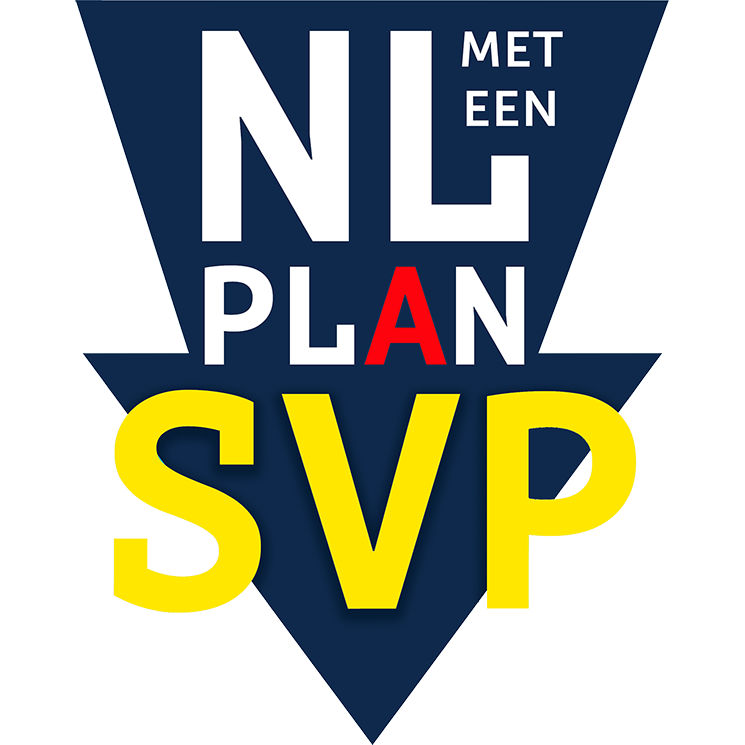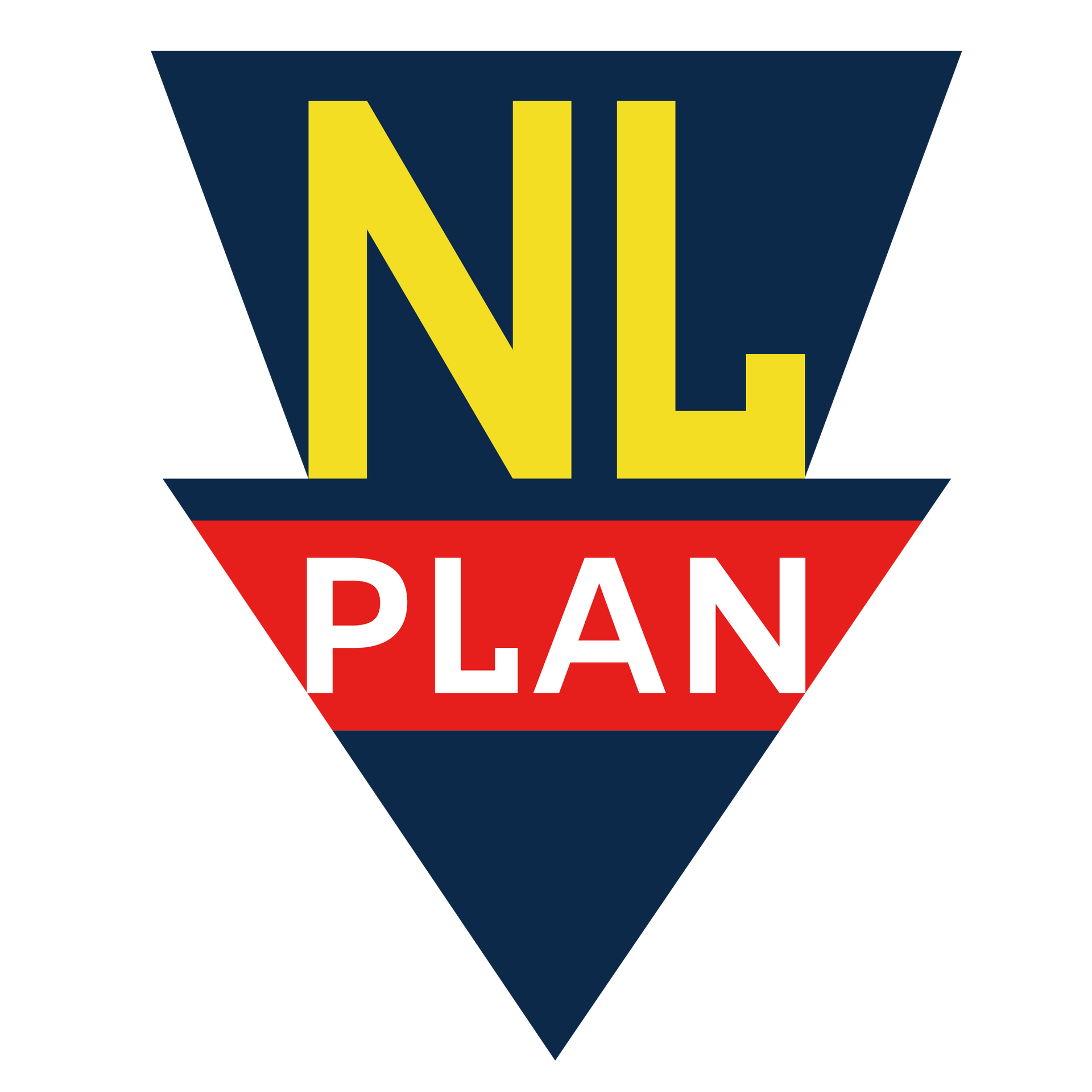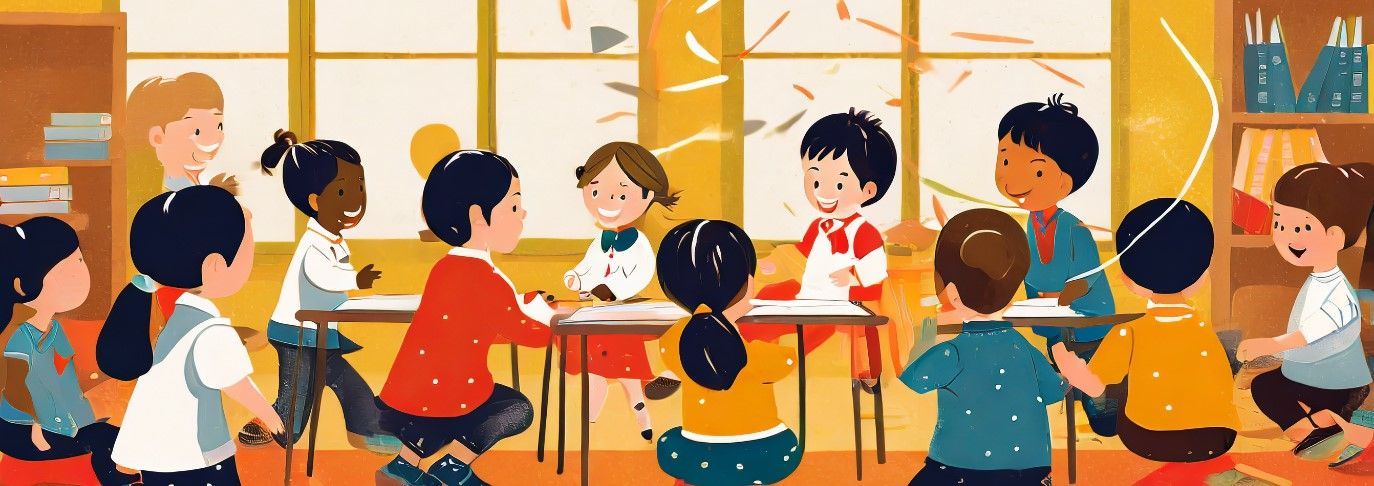Growing up and Education, Arts, Culture and Science
Child development is extremely important for people and society. NL PLAN stands for equality of opportunity: That every child is allowed to develop in his/her own way and that we offer them and their parents the resources they need to achieve this.
Good education shapes the society of the future. If children become jaded and frustrated then that also results in a future jaded and frustrated society. What is important is that children resonate with their environment and thus learn to develop their interests naturally. This is not possible with pre-chewed textbooks, of which nowadays we also have to be very careful that the subject matter is correct and does not contain government propaganda. True education, true art, culture and science have to do with resonance. When a child resonates from his/her deepest being with the knowledge given from the heart, a connection is possible that leads to true inspiration and creativity. Only then is the healthy development of a critical and empathetically aware mind possible, which in adult life can be resilient when a blunted and prescribed reality is suddenly imposed.
The statements under this heading are written from a government perspective. NL PLAN is for a facilitating government that does not interfere too much with the content. NL PLAN therefore has no judgment within these statements about the different types of education. Of course, we do have a vision. Therefore, in the chapter VISIONARY PROPOSITIONS EDUCATION, we will describe the statements that convey our vision.
Childcare
Solving staff shortages
Quality in child care is currently deteriorating rapidly due to staff shortages and work pressure. The change in maternity leave ensures that childcare only starts at six months. Infant care requires the most staff, and this will solve the staff shortage in child care at once. Recruiting staff to then expand child care to 4.5 or 5 years of age is done through a national campaign. By extending parental leave and starting childcare later, we solve the childcare shortage and thereby relieve educators and the childcare industry.
Adjust occupational force-child ratio (BKR)
In recent years, the number of children per group has gradually increased making the workload unhealthy.
| Samenstelling | Leeftijd | Huidige situatie | NL PLAN |
|---|---|---|---|
| Groups with all children one age | 0 to 1 | 3 | 3 |
| Groups with all children one age | 1 to 2 | 5 | 5 |
| Groups with all children one age | 2 to 3 | 8 | 7 (-1) |
| Groups with all children one age | 3 to 4 | 8 | 8 |
| Mixed age groups | 0 to 2 | 4 | 4 |
| Mixed age groups | 0 to 3 | 5 | 5 |
| Mixed age groups | 0 to 4 | 5 | 6 (+1 at max 2 of 0 years) |
| Mixed age groups | 6 | 5 (-1) | |
| Mixed age groups | 1 to 4 | 7 | 6 (-1) |
| Mixed age groups | 8 | 7 (-1) |
Equity of opportunity and poverty reduction in child care.
Child care is free for modal and upper-middle incomes based on income and for minimum incomes. From 2 years of age mandatory two days per week of care for all children.
Primary and secondary education
The transition of children from nursery to group 1-2 is now age-based. When a child turns 4, they enter school regardless of their development. This ensures that children do not enter at the same level but have to use push and pull to arrive at an 'average score' in terms of development. Learning is not based on interest but on a curriculum that is almost a century old!
Connecting to children's development
Pre-school education moves to a class/level of 5-6 years. Childcare and education will work together in preschool education, allowing children to attend school when they are developmentally ready. Progression based on development around the age of 5 better suits brain development. It also allows children to move around a bit longer and have supervision in slightly smaller groups. Childcare has a lot of experience in connecting with children's development and can certainly play a great role in providing innovative education in preschool groups. Children are allowed to discover how to connect with themselves and the world at their own pace and in their own time.
Reducing workload
To reduce workload, we want to have one teacher and one teaching assistant in the classroom at all times in preschool education. In addition, we can explore a new system where we use talents of professionals and parents and not just school teachers.
Primary education curriculum
In education, movement and exploring the world should be central alongside language and arithmetic. Standards, values and culture are also an important part of the curriculum. We also want to stimulate creativity, self-care, communication and dealing with each other, cooking lessons and school swimming. If we allow children to partially choose what they learn, they can develop their talents and creativity much better.
Solving education staff shortages
Use talents of external experts and not just school teachers. By having only the basic subjects of language and maths taught by Pabo teachers at fixed times, these teachers can have several classes and other (practical) lessons can be taught by professionals/volunteers and parents, under the guidance of, for example, one class assistant per class. As with childcare, there is staff shortage in education where we can recruit staff for both professions through one national campaign.
Freedom of education, no more scoring
By stopping government-imposed scoring of schools, we also stop compartmentalising students based on a 'test' culture. Children can again be looked at based on their well-being and development rather than their test results.
Education is a right for everyone, but everyone is also free to choose the most appropriate education for themselves. Different forms of education are subsidised on an equal basis based on supply and demand.
Special education
Special education is a fundamental right. The diversification of Dutch society is also allowed to take shape in education. There will be more room for schools of different perspectives and new curricula. Besides Christian, Islamic, Montessori, Vinse or free schools, initiatives from different social world views and opinions should be honoured by the government.
No identification statement
Non-public schools should be accessible to all students (no declaration of identification).
School fees according to ability to pay
School fees for primary and secondary education are calculated according to ability to pay. Every citizen and student has the right to be educated at secondary level.
Stop the merger wave
Schools should be smaller and more versatile. The merger wave is a historical mistake. The tendency to create large anonymous school communities has come at the expense of more intensive personal education and social contacts.
Encouraging broad primary schools
A comprehensive primary school is a school where the developmental opportunities of every child are enhanced through overarching cooperation. Pupils there are offered extracurricular activities in addition to education. These are often activities related to art, culture and sports.
Teachers and tutors are at the heart of the school
Being a teacher is a beautiful and honourable profession. Management and teachers decide the future of a school. Management is subservient to the development of teachers and their teaching needs. We advocate that teacher's salary should be at least equal to that of management.
Accessibility
A school or educational institution should always be accessible to children with physical disabilities/different abilities. In new construction or refurbishment, a school or educational institution should take this target group into account to the maximum extent possible.
Visionary propositions education
The statements below are not written from a government perspective, but purely from the vision of NL PLAN.
The 'new learning'
The 'new learning' has the future. The future society makes increasingly sophisticated demands on its citizens. School trains for everyday social life. The complaint that children have to learn to listen, spell, do mental arithmetic again stems from reactionary nostalgia. The 'new learning' with independent work, social orientation and practical skills has the future.
Broad development
Education should provide opportunities for broad development, in the areas of awareness, art, culture, sports and games, practical (manual work, cooking, photography, blacksmithing, handicrafts, etc.), technical and cognitive education.
Children's talents are stimulated
The moment a child resonates with a particular skill or knowledge, motivation will also be much higher. Education should rather assume problem-based learning, rather than Cognitive Load Theory.
More social education
Social topics form a hard core for education. In secondary education, there will be much more room for compulsory social subjects, such as labour and income, housing and renting, health education, state planning, media, religion and philosophy of life.
Religion and philosophy of life
Religion and philosophy of life should be used broadly. The customs and characteristics of all religions and worldviews are taught. Mindfulness and simple awareness exercises embedded in daily life are taught from an early age.
Long live technical schools!
Technical schools are given a new status and appreciation. Technical and vocational education should be given parity with administrative and general education. Pre-secondary vocational education (vmbo) with its hierarchical curricula will be dismantled.
Higher education
Student fees according to ability to pay
Student fees are questioned by NL PLAN and should at least be proportionate to ability to pay. The question should be raised whether there should be a financial barrier to higher education.
Reintroduction of basic grant
If it is up to NL PLAN, the basic scholarship will be reintroduced. Fortunately, this is already in the government's planning for the 2023-2024 academic year.
Higher interest on study debt must be off the table
The interest rate on student loans will increase fivefold from 0.46 to 2.56 per cent on 1 January 2024. This means that students and graduates will often have to pay thousands of euros more.
Many students pay their rent, tuition fees, books and groceries from their student loans. As a full-time student, a part-time job offers no relief. If the annual interest rate on the debt is increased, paying it off becomes a long-term story.
The basic grant is still very low (€121.33 per month for those living at home, €466.69 per month for those living away from home), so keeping the interest rate at 0 per cent for new students is recommended.
NL PLAN opposes the current interest rate hike for a student loan.
Admission requirements
Higher education institutions will get more rights to select students at college and university level on their qualities and possibly have them take an exam. Binding study advice will be abolished.
Broader student guidance
Both qualitatively and quantitatively, more attention may be paid to the student. Thesis and internship guidance are often too limited and may be expanded.
Better information on choosing a study programme
Already from secondary school in consultation with higher education, there should be a thorough guidance programme to help exam students who have the ambition to study orientate on their study choice.
Strong co-determination
Students and teachers should have more influence on the management of their educational institution.
Science
Invest in the knowledge society
There will be wider grant opportunities and funds for research proposals and knowledge institutions.
Reduce influence Big Tech and Big Pharma
Reduce the influence of the dominant internet giants and pharmaceutical industry on science. Research funded by large pharmaceutical or technology companies should be subject to additional scrutiny by a changing panel of emeritus scientists.
Research and professional practice
Wider funds will be provided for applied professional science and investigative journalism.
Internet and social media
Internet freedom and anti-censorship law
Internet freedom is a foundation of the modern knowledge system. NL PLAN wants an end to mass censorship of platforms on the internet. Preventive censorship of expressions through the printing press and, as recognised in case law, through means of expression equivalent to it is constitutionally prohibited. Internet platforms that censor are sued and financially prosecuted.
Disinformation campaigns to be abolished
'Fighting disinformation' by governments and subsidised institutions is a dangerous development that can easily lead to top-down governance and censorship. Citizens are mature enough to make their own choices. The Digital Services Act (DSA) package imposed by the European Commission must be taken off the table immediately. If it is up to NL PLAN, the Netherlands will not comply and will oppose it.
Television/radio
Radical opinion formation gets space again
Political diversity and radical opinion formation are getting more space. During the corona crisis, but also today at the time of the Russian-Ukrainian armed conflict or the climate story, the dominant traditional mass media, and public media in particular, shows itself to be very single-minded and law-abiding to the prescribed government mantra. It has urgency to let more diverse, critical and independent voices have their say.
Public broadcasting
Public broadcasting is largely state-subsidised, but due to its competition with commercial broadcasters, it comes up with increasingly superficial programming. This competition with subsidy funds is having a negative impact and is undesirable. Public money can only be legitimised if the programmes have a social, educational or artistic value. Viewing figures should only play a limited role in assessing funding.
Arts and cultural heritage
More money to artworks and artists
NL PLAN is for an extra €1 billion nationwide for artworks and artists. The state budget for the Arts goes from 0.58 per cent to the European standard of 1 per cent. In practical terms, this means an increase in the budget to around 1 billion euros or 60 per cent. Artists and their projects will particularly benefit from this.
Increase arts funds
Substantially increase arts funds for art and artists. In practice, self-employed artists are the balancing item in arts budgets. NL PLAN is in favour of substantially increasing funds for artists and their projects.
Free admission to museums
Art and culture is the nourishment of creative and spiritual people. Art and culture stimulates social cohesion and citizenship. It is essential for people and society that this remains intact and is actually fully stimulated. NL PLAN wants to make museums accessible to the Dutch population free of charge, and theatre and performing arts more accessible through reduced rates. Tourists pay full rates.
Open the archives!
NL PLAN wants abolition of user fees. Historical archives are freely accessible, but if a person, institution or company wants to copy or use something, there are high barriers. Rights of use will be abolished, copyright and fees minimised. Every archive will have a web shop, where users can download and use historical heritage at consumer rates.
Navigate using the red buttons below to read the rest.




